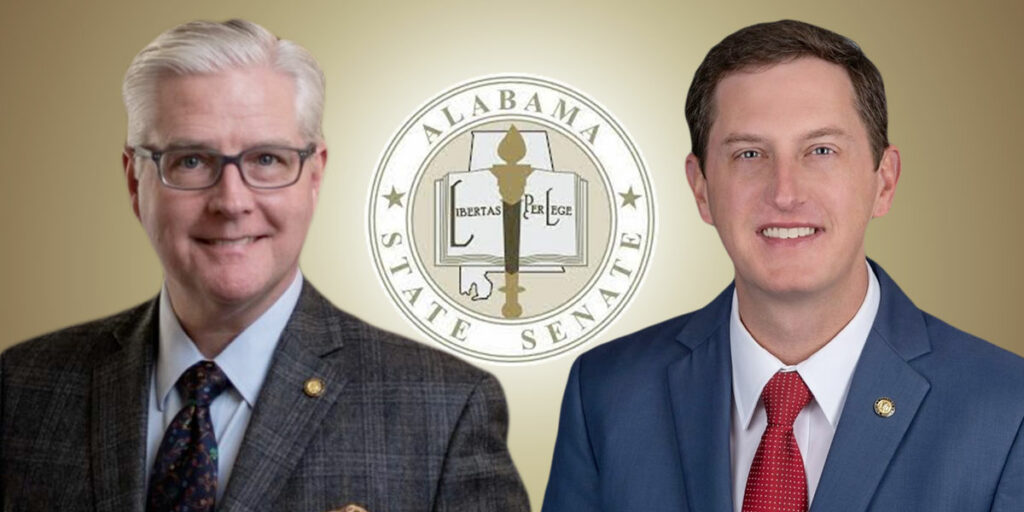Twenty-five years ago, Alabama voters were in the midst of an intense debate over the perceived positive and negative impacts of expanding gambling in the state. The centerpiece of Don Siegelman’s 1998 gubernatorial campaign, a constitutional amendment was on the ballot in October 1999 to create a state lottery.
Siegelman promised that the lottery would create a minimum of $150 million per year in new revenue to put towards college scholarships, a state-run Pre-K program, and to increase the technological capabilities of schools. Others promised that gambling expansion would increase economic development opportunities within the state and be a boost to Alabama’s overall economy.
On October 12, 1999, Governor Siegelman’s lottery proposal was defeated by an 8.5% margin.
Despite the defeat, efforts to expand gambling in Alabama continue today, with the latest proposal that would establish not only a lottery but allow Las Vegas style casino gambling and unlimited sports betting to blanket the state. Many of the same arguments that were used in 1999 are still being used today, with proponents claiming that expanded gambling could be a more than $1 billion boon to the state government every year.
While there are numerous economic and social arguments that can be made about the perils of gambling expansion and why Alabama should reject the latest effort, Alabamians need only to focus on how much the state has improved over the last 25 years without legalized gambling to see why gambling and the myriad of problems that come with it are needed less now than ever.
Take for instance population growth. In 1999, Alabama had a population of 4.37 million. Today, the state’s population sits at 5.11 million, an increase of nearly 17%. More than 700,000 new residents have moved to Alabama in the past 25 years. In contrast, the state of Mississippi, which has had casino-style gambling for decades and established a state lottery and legalized sports betting in 2018, has increased its population by just 6.2% since 1999.
Those moving to Alabama today find themselves in a much better situation than 25 years ago.
In 1999 per capita income in Alabama was $22,972. In 2023, per capita income rose to $53,083. Even after adjusting for inflation, per capita income in 2023 was more than $11,200 higher than in 1999. As of December 2023, 2.3 million Alabamians were employed and the state’s unemployment rate was just 2.6%, over a point below the national average. The state has 237,000 more people working now than in 1999 and the unemployment rate is about half of what it was then.
Many of those choosing to move to Alabama in the past quarter century have done so because the state has more economic opportunities than ever before.
Alabama is now among the top five automotive producing states in the country. Mercedes-Benz started the trend back in 1997, but since then other major automotive companies such as Hyundai, Honda, Toyota, and Mazda have moved to the state as well. Not to mention the countless number of suppliers for the industry. Just last week, Toyota announced the completion of a $222 million project to build a new engine at its Huntsville plant. Automotive manufacturing contributed $12.6 billion to Alabama’s economy in 2022 and accounted for more than $900 million in tax receipts to state and local governments.
The aerospace industry has also continued to boom over the last 25 years. Alabama is one of the top five states in the country for aerospace engineers, having 3,900 people employed in the profession. Aerospace manufacturing provides jobs to nearly 15,000 Alabamians, with over three hundred companies choosing to do business in the state, including industry leaders like Boeing, Airbus, and Lockheed Martin. Since entering Alabama, Airbus has invested over $1 billion in its Mobile manufacturing facility. Governor Ivey said the addition of 1,000 new jobs at the Airbus facility will push total employment there to 2,800.
The state has also continued to see infrastructure improvements which have allowed for some of that industry growth. For example, the Port of Mobile has had more than half a billion dollars invested into capital improvements in the last 25 years, making it easier for the steel manufacturers, the aerospace industry, and others to get goods and supplies in and out of the state. The Port of Mobile had an economic impact of over $98 billion on Alabama’s economy in 2022, and more than $1 billion in capital projects are underway to support continued growth.
The overall growth of industry in Alabama is not expected to end anytime soon. The Legislature has taken steps to ensure that, enacting “The Game Plan” in 2023 which should continue to bring new jobs and more opportunities to Alabamians.
Governor Kay Ivey recently announced that Alabama companies exported goods and services worth over $27.4 billion in 2023, setting a new annual record for the second consecutive year and underscoring the resilience of the state’s economy. The value of last year’s exports rose 6% from the previous year’s total of $25.5 billion, according to data from the Alabama Department of Commerce. Last year’s record export activity was driven by rising overseas shipments of Alabama-made vehicles, aerospace parts, minerals and metals, Commerce data indicated.
Alabama is already an economic leader in many areas, with that progress poised to continue for years to come. The state is a much better place to live and work today than it was amid the gambling debate 25 years ago.
Resisting the urge to expand gambling and investing in our economy are two things that Alabama has done right. Alabama has prospered in ways that we couldn’t have even imagined since the statewide rejection of the “Education Lottery” in the 1990s. Alabama is on an upward trajectory — built by smart investments, ingenuity, and hard work. The expansion of gambling communicates the exact opposite message. Don’t get a job – game the system. Don’t invest in the future – take all you can now. Don’t worry about the poor- use their desperation to your benefit. Don’t work hard – get rich quick. Don’t protect families – fill the state’s coffers with their losses.
Our faithfulness and Alabama values have been rewarded with successes and astronomical growth. Why would we want to risk that progress now by allowing the expansion of gambling and a lottery to poison the state? As the stars continue to fall on Alabama, let’s not discount the favor of the Creator of those stars. Let’s remain faithful, protect Alabama families, and reject the expansion of gambling in our state.
Stephanie Holden Smith is the president/CEO of Alabama Policy Institute.













